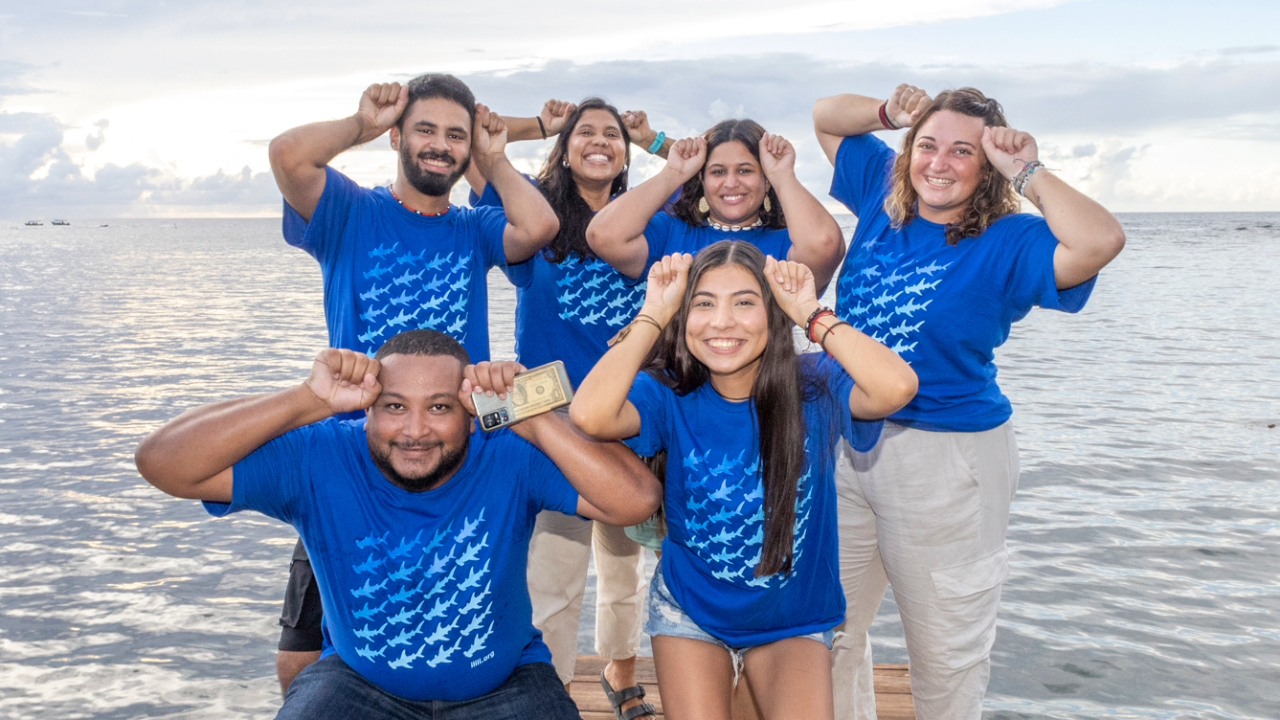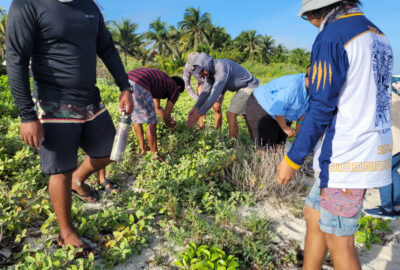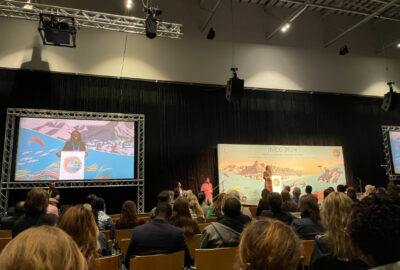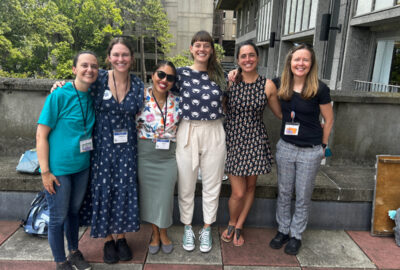Building Capacity for Shark Conservation in Honduras: Strengthening Our Team for a Greater Impact
Hear from Alpha Sevilla, Ilili program coordinator, whose organization in Honduras is supported in part by our Marine Conservation Action Fund.

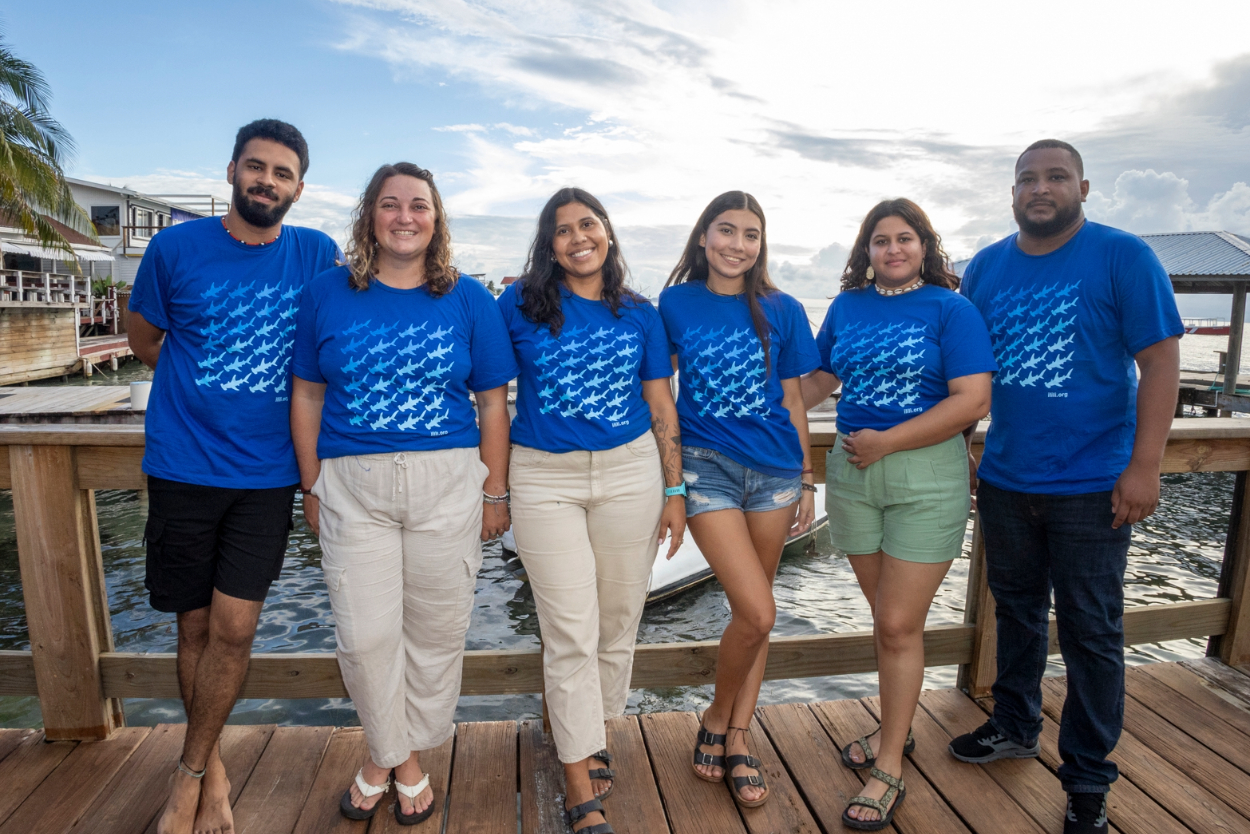
By Alpha Sevilla, Ilili Program Coordinator
This post is one of a series on projects supported by the New England Aquarium’s Marine Conservation Action Fund (MCAF). Through MCAF, the Aquarium offers multi-faceted support to leaders from low- and middle-income countries who are spearheading community-based ocean conservation initiatives.
Honduras is home to some of the most diverse marine ecosystems in the Caribbean, including vital habitats for sharks and rays. However, these species are increasingly threatened by overfishing, habitat destruction, and insufficient enforcement of conservation measures. At Ilili, we are committed to bridging the gap between science and conservation by generating data, advocating for policies that benefit both marine life and local fishing communities, and engaging these communities in marine protection efforts. Strengthening our internal capacity is just as crucial as the fieldwork we carry out.
Our team consists of dedicated professionals working from various regions of Honduras. While virtual meetings keep us connected, in-person collaboration is essential for fostering teamwork, aligning strategies, and advancing our mission. Thanks to the support from the Marine Conservation Action Fund, we had the invaluable opportunity to gather on Roatán Island for our strategic annual meeting. This meeting allowed us to refine our 2025 operational plan, clarify roles and responsibilities, and enhance coordination across all projects.
In addition to planning, this meeting enabled us to build stronger relationships and create high-quality outreach materials, including professional photos and social media content. Effective communication is vital for raising awareness, securing partnerships, and inspiring others to join our conservation efforts.
As part of our capacity-building initiatives, two of our team members successfully obtained their open-water diving certification, which is key for enhancing our ability to monitor marine species and collect data more efficiently. This new skill enables us to conduct research using advanced methods like Baited Remote Underwater Video Systems (BRUVS), improving both the quality of our data and the safety of our fieldwork.

Despite facing challenges—such as some team members being unable to attend the meeting or complete the diving certification due to health issues—we adapted and focused on the aspects of the project we could advance.
Moving forward, we will continue implementing our 2025 operational plan, ensuring that the activities and responsibilities outlined during the Roatán meeting are executed effectively. Our priorities include finalizing ongoing projects, strengthening our fieldwork capabilities, and further building relationships with local communities and stakeholders.

In the long term, Ilili aims to achieve financial sustainability, enabling us to hold regular in-person meetings and enhance team cohesion and technical capacity. One of the major challenges to achieving this is securing consistent funding. To overcome this, we will focus on diversifying our funding sources and forging partnerships with like-minded stakeholders. Additionally, improving virtual communication systems will be crucial to maintaining team engagement and motivation while working remotely.
The support from MCAF has been instrumental in enhancing our effectiveness as an organization. By bringing our team together, equipping them with essential skills, and improving internal coordination, we have laid a strong foundation for future conservation successes.
As we continue our work, we remain committed to fostering partnerships, engaging local communities, and driving meaningful change in marine conservation. The ocean needs dedicated stewards, and with the right tools, training, and teamwork, we can make a lasting impact.
